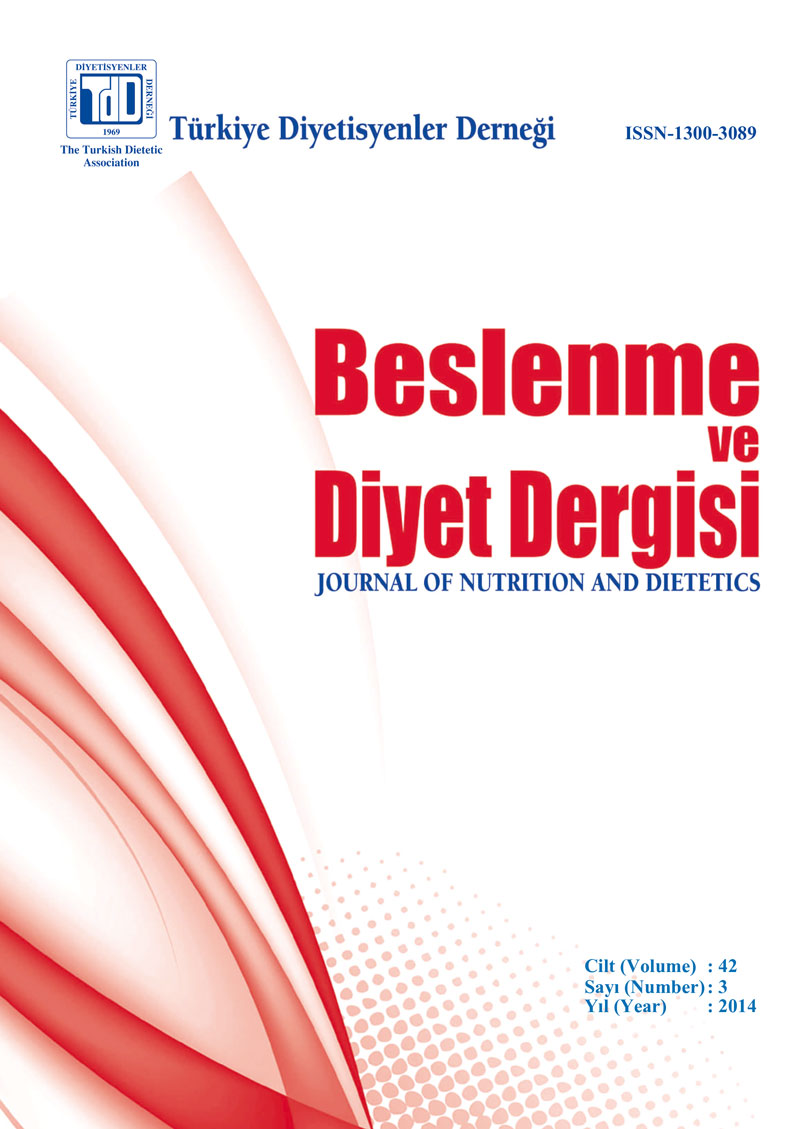Does Olive Oil Consumption in Newly Diagnosed Invididuals with Hypercholesterolemia Affect Serum Lipid Profile?
Keywords:
Hypercholesterolemia, olive oil, blood lipidsAbstract
Aim: The aim of this study is to determine the effect of the olive oil consumption on the serum lipid profile in the individuals with newly diagnosed hypercholesterolemia. Subjects and Methods: Seventy three invididuals (24 male, 49 female) aged between 30-60 years with serum total cholesterol level of 240-350 mg/dL, who applied to Adnan Menderes University Practice and Research Hospital, were included in the study. A questionnaire including information on general personal, eating habits, the frequency of food consumption, and three-day (one of the days in the weekend) dietary record was administered to all individuals. The anthropometrical measurements of the individuals were taken and the biochemical findings (high-density lipoprotein cholesterol (HDL-C),low-density lipoprotein cholesterol (LDL-C), total cholesterol (TC), triglyceride(TG)) were recorded. Results: Median of serum lipid levels was found 255.0 (240-350) mg/ dL for TC, 173.0 (126-284) mg/dL for LDL-C, 49.0 (28-97) mg/dL for HDL-C and 129.0 (57-443) mg/dL for TG. It was determined that 90.4% of the individuals consumed olive oil every day and the daily consumed amount was 32.0 (0-174) g. Depending on the olive oil consumption status of the individuals, no significant difference was found between TC, LDL-C, HDL-C and TG levels (p>0.05). Conclusions: Serum lipid profiles of individuals were not affected positively or negatively with increased consumption of olive oil. High consumption of olive oil is not a risk for hypercholesterolemia.

